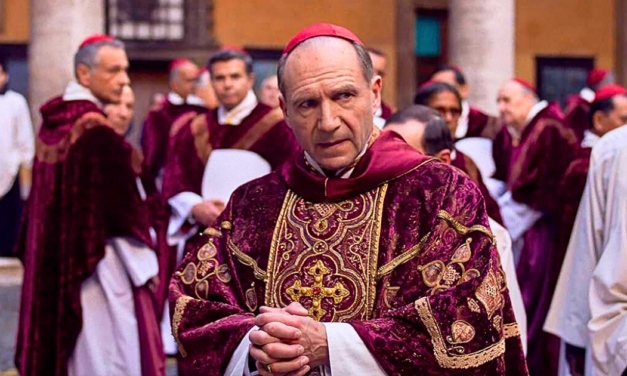
Chapter One:
The Vision of CRI
Before I discuss Bill Alnor and his allegations I think it’s important to appreciate fully just what it is he has been persistently opposing, hindering, and attempting to destroy. The Christian Research Institute was founded by Dr. Walter Martin in New Jersey in 1960. Walter was a pioneer in the field of cult research and, as a countercult/apologetics/discernment ministry, CRI was the first of its kind and today is the largest and most influential of many such ministries.
Walter’s vision was to equip Christian missionaries and churches with the information they needed to protect their sheep from being devoured by modern-day wolves—the cults on the mission field and at home. His vision for CRI was also to equip lay people with an understanding of the essentials of their faith, the errors of the cults, and how to turn the tables on the cults by making their followers the Christian’s very own “mission field on your doorstep.” This would be accomplished by using the cults’ errors as springboards to witness to their followers about the true Jesus and the true gospel. Walter referred to his vision for CRI as “pop apologetics,” which he contrasted with “top (scholarly) apologetics” and “slop apologetics.” His goal, which he often repeated, was to take the best research of “top apologetics” and make it accessible to lay people, so that they would become confident in their faith, discerning of doctrinal error, and able to make a compelling defense of the hope that lies within them to cultists, occultists, atheists, and unbelievers of all kinds.
How do I know all this? Because Walter hired me to serve as a research consultant at CRI in 1976, when he was building a completely new staff after relocating to California two years earlier. I answered correspondence, took phone calls, served as Walter’s teaching assistant at Melodyland School of Theology, edited Bible Answer Man programs for rebroadcast, and did extensive research and analysis for use in Walter’s books. Walter came to trust me particularly as an expert on the Eastern cults and the occult. A couple years later, when a financial crunch necessitated the release of most of the staff, I was one of three researchers he retained. The next year (1979) I relocated to Missouri for eight months after becoming engaged to a woman there, but I continued to work for CRI full-time on a contract basis. When I returned to California after the engagement broke up, I was on the verge of launching a church-planting ministry, but Walter appealed to me to come back to CRI to head up his research department and serve as editor of his fledgling magazine, Forward. I had always felt torn between pastoral work and apologetics and was seeking to combine them; however, after a year of prayer I had to conclude that God had not confirmed a call to the church-planting work but was indeed opening the door to do a major work at CRI. While I’ve continued to contribute my pastoral and teaching gifts to whatever church I’ve been a member of, from that point on I knew apologetics ministry at CRI would be my life’s work.
Over the decade that followed I had the opportunity to enjoy sweet fellowship with Walter Martin as we worked to move CRI more fully into the vision that God had given him for it. He explained his vision for CRI many times, both to the staff and to me personally. Walter understood that I embraced the vision God had given him as my own. He therefore entrusted me with steering the course of the ministry’s flagship publication and overseeing all of the research department’s literary output, responsibilities I hold to this day.[1] As I began to transform the Forward newsletter into the Christian Research Journal, Walter told my father over lunch that this would one day be one of the most important magazines in the Christian world. Far be it from me to boast about any of this; my purpose is simply to express my sense of CRI as a work of God and to make clear my calling to this work and my understanding of its purpose, as validated by its founder’s unwavering trust in me to carry on the most central part of the work apart from his own ministry.
The Journal was a step forward toward the fulfillment of Walter’s vision, but to a large extent CRI remained a small-scale ministry. Walter was on the road most of the time and lacked both the time and the management skills to move CRI effectively into fulfillment of the vision for it that had been driving him for nearly three decades. Walter was also keenly aware that, with the health complications resulting from his diabetes, he was a “walking time bomb,” as one CRI administrator told him in my presence, with his assent.
In the late ‘80s Walter came to understand that for the ministry’s sake he needed to step aside and let a man of God’s own choosing lead the ministry into the new millennium. I saw many men brought into Walter’s office. Some were even allowed to share the Bible Answer Man microphone with him; but Walter did not find the man he was looking for. Around this time, however, a bright, youthful (late thirties) man from Georgia joined the CRI board and began spending time around CRI. Walter was extremely impressed not only with his contributions to the board but also with his integrity, vision, business acumen, communication skills, memorization skills, and ability to teach memorization and apologetics to others. Everyone at CRI seemed likewise to be impressed with him. In late 1988 Walter announced that this man, Hank Hanegraaff, would be joining CRI in the position of executive vice-president. This was effectively the CEO position, as Walter, though remaining president of the board, announced that he was turning the day-to-day direction of the ministry over to Hank and he would continue only as CRI’s “spiritual leader.” He explained that by this term he meant he would continue to serve as the public face of CRI and to provide guidance to the staff as needed on theological/apologetic issues.[2]
Just one-half year later, in June 1989, Walter Martin passed on to meet his Lord. Though some people have subsequently attempted to rewrite history, there was no controversy at the time about who should take over the ministry because Hank had already taken it over while Walter was still alive. In the 1995 document that we are now making available in appendix D of this book, Setting the Record Straight, I describe in more detail than I will here the phenomenal job Hank did of transforming CRI from a niche ministry mainly reaching the Christian countercult community to a major, high-profile ministry reaching the body of Christ at large. In just a few years the listening audience of the Bible Answer Man broadcast had grown from thousands to millions and the readership of the Christian Research Journal had grown from five thousand to thirty-six thousand.
Since 1995 the ministry has had to weather the repeated onslaughts of Alnor and his associates, but it has stayed on course with its original cause concept and continues to bear abundant fruit for the Kingdom of God. Walter used to say, “We need to get the hay out of the loft and put it down on the barn floor where the cows can eat it” (i.e., CRI’s mission is to make top apologetics accessible and understandable to lay people). This is exactly what Hank Hanegraaff does like no one else in the body of Christ. Employing acronyms, alliteration, and other memory aids, Hank has familiarized hundreds of thousands of Christians with the essentials of, and evidences for, the Christian faith. With an estimated listening audience in the millions, Hank has been a vital voice in the wilderness of Christian broadcasting. He demonstrates daily both to Christians and to listening nonbelievers that Christianity has a rational basis and that there are answers to the best arguments the enemies of the faith can dream up. When it comes to countering the errors and excesses of TBN and many TV and radio preachers, Hank is the only biblically sound and sane voice that many listeners hear.
My profound conviction is that CRI is a work of God that God called Walter Martin to begin and Hank Hanegraaff to extend. All of the priorities and goals that Walter set for the ministry described above have remained central to CRI and are being realized to an extent to which I have no doubt Walter would be pleased. I knew intimately the calling, anointing, priorities, and vision of Walter. Over the past twenty years I have also come to know intimately the calling, anointing, priorities, and vision of Hank. There is no conflict between the two. The latter picked up the work the former began and ran with it.
Now, Walter was not perfect and Hank is not perfect (neither am I, for that matter!). The enemies of this work have often focused on the human flaws of either man and tried to exaggerate and embellish them until the picture that emerges is one of a corrupt, hypocritical, even evil man. But I knew Walter up close and I know Hank the same way, and Walter was, and Hank is, a man of deep faith, conviction, love, and commitment to God and the calling that He has placed upon him. I never saw Walter flinch from proclaiming the truth no matter what the consequences (and there often were great consequences), and I’ve never seen Hank flinch from the same calling, despite comparable consequences and even greater opposition. I know both sides of every story that was ever told about Walter and that has ever been told about Hank, and I have never seen one incident that would truly qualify as a scandal, or that would cause me to question my own ability to serve at CRI in good conscience. I’m not asking you simply to take my word for it; this present response and Setting the Record Straight will specifically address the major charges that have been made against Hank and help you understand why my support for Hank is unwavering, even as it was for Walter.
Some argue that CRI doesn’t emphasize the cults as much as it did under Walter and thus has steered off course. This is a simplistic analysis. CRI has always cast a very wide net and was never anything near exclusively concerned with the cults. From the day I started at CRI Walter stressed that CRI’s focus was the cults, the occult, and general apologetics, and numerous topics unrelated to cults fit under the headings of the latter two categories. To these three categories could be added heresies and aberrant teachings within the church and the encouragement of critical thinking among Christians with issues such as conspiracy theories, which were always prominent in CRI’s focus. Any topic was fair game for Walter on the Bible Answer Man, and CRI made available Walter’s taped lectures on such ethical issues as abortion and homosexuality. All of these remain the focus of CRI today.
In the 1970s cultism was sweeping America’s youth and so the cults naturally loomed larger on CRI’s radar screen. By the 1980s the wave of new cults was already passing and other apologetic challenges for the lay Christian came to the fore, such as the New Age movement (representing the occult) and the Word of Faith movement (representing heretical and aberrant Christian teachings). Walter wrote and spoke extensively on these topics, as did the research staff of CRI. Had Walter lived into the 1990s and the present decade he would have been equally concerned with such challenges as postmodernism, the laughing revival, and the current upsurge of atheism. Walter’s passion was for lay people to become equipped, whatever the theological and apologetic challenge, and he would have adjusted his approach so he could constructively influence the entire Christian community. He would not have chosen to remain in a countercult ghetto while the major apologetic challenges facing Christians shifted to other areas. Nevertheless, CRI continues to see the cults as its first of several areas of specialization. Cults that continue to thrive, such as the Mormons and the Jehovah’s Witnesses, remain a central focus of both the Bible Answer Man and the Christian Research Journal.
[1] Walter originally appointed me Senior Research Consultant, which involved overseeing all of the activity of CRI’s research department, including publications, correspondence, phone ministry, public speaking, and the whole range of personnel supervision responsibilities. I soon found the job description too broad, and, wanting to concentrate on CRI’s literary output, I obtained Walter’s blessing to separate the position of editor-in-chief from that of senior research consultant. I filled the former position and Brian Onken was the first to be hired to fill the latter position, the title and exact responsibilities of which would change somewhat over time.
[2] I have on file my own handwritten notes from the staff meeting where this was announced. I have always been a compulsive note taker and memo saver and so I can document virtually all of the information recorded here. There is also the recorded Bible class at Newport-Mesa Christian Center in which Walter introduced Hank to his students as the one who was taking over the reins of CRI (see appendixes A and B) and the endorsement Walter wrote concerning Hank that was published in the CRI newsletter (quoted in appendixes A and D).









